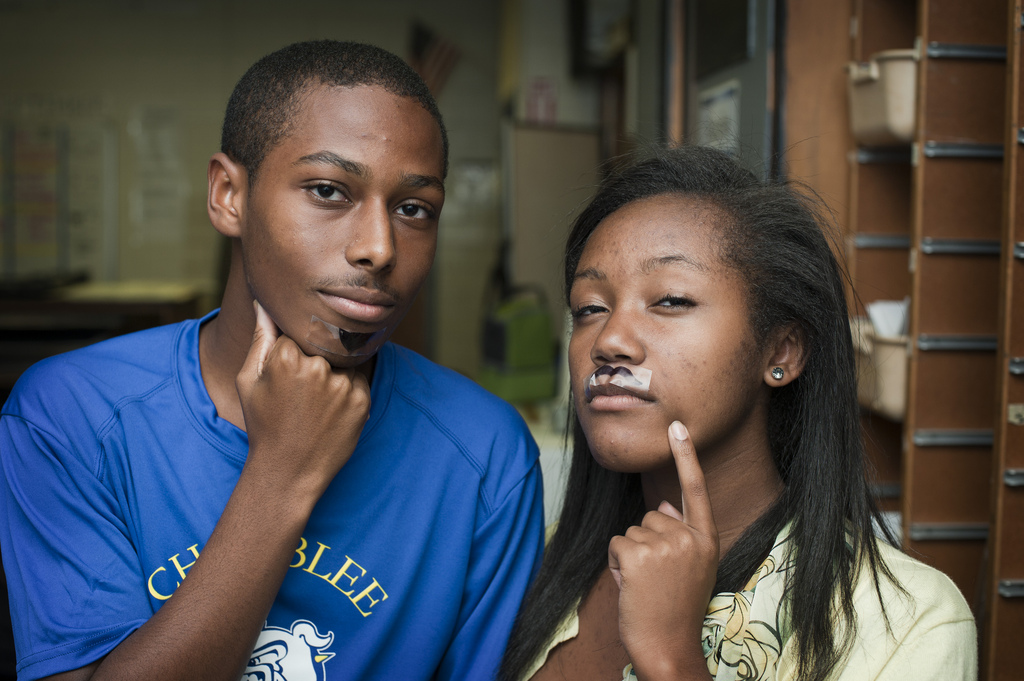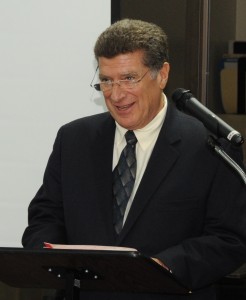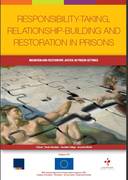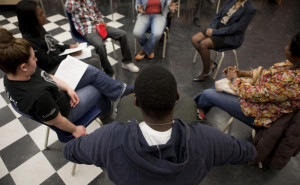News & Announcements
- Details
- Written by Joshua Wachtel
From Minnesota Department of Education describes how principals use restorative discipline practices | Twin Cities Daily Planet comes this rather striking statement about a survey conducted in the state:
"The survey was completed by 417 Minnesota principals, of whom 66 percent reported using restorative methods in response to some behavior problems."
And then there this quote by Nancy Riestenberg:
“Students have to be held accountable for making mistakes,” Riestenberg said. “If you don’t give them the opportunity to wipe up their own milk that they spilled, you’re robbing them of the responsibility to learn that they can make a mistake, and they can fix it.”She said suspensions can actually increase incidences of bullying. They can lead to lowered academic achievement and decreased attendance. “The suspensions ended up making them feel so disconnected they didn’t want to come anymore,” she said.
- Details
- Written by Joshua Wachtel
Two letters tell the story. This was posted Monday, May 7, 2012 in the Upper Rogue Independent, without a byline:
One of the programs that we administer in partnership with the Jackson County Juvenile Department is called the Victim Assistance, Youth Accountability (VAYA) program. This program is rooted in the principles of restorative justice - a community response to crime that focuses on addressing the harms done to victims and communities by holding offenders meaningfully accountable for their offenses. According to Cara Walsh, Director of Restorative Justice Programs for Mediation Works. We recognize that crime is more than just a violation against the law and state, but also a violation of people and relationships. Thus, our role in the community is to support youth in being accountable for the harms they caused, provide supportive services to victims of crime, and engage the community in this process, said Walsh.
- Details
- Written by Joshua Wachtel
 The Restorative Justice Council has posted that on June 9, 2012, in the Queen's Speech which marks the start of the new session of parliament, she will mention "Neighbourhood justice panels, in which community volunteers use restorative justice to deal with anti-social behaviour and low-level crime." This process will be a part of new legislation. According to RJC:
The Restorative Justice Council has posted that on June 9, 2012, in the Queen's Speech which marks the start of the new session of parliament, she will mention "Neighbourhood justice panels, in which community volunteers use restorative justice to deal with anti-social behaviour and low-level crime." This process will be a part of new legislation. According to RJC:
- Details
- Written by Laura Mirsky
 Israel is home to many different people and communities. Restorative dialogue among these individuals and groups and between them could make life much more relaxed and happy.
Israel is home to many different people and communities. Restorative dialogue among these individuals and groups and between them could make life much more relaxed and happy.
Israeli society was introduced to Restorative Justice and its concepts in the late 90’s. In November 2011 the Knesset (the Israeli Legislature) incorporated restorative justice in its legal system with the 16th amendment of the 1971 Youth Judgment, Punishment and Methods of Treatment Law, making restorative justice practices a formal criminal justice diversion in juvenile cases. Recently, the Israeli Ministry of Justice also initiated a pilot restorative justice program designed for adult offenders.
- Details
- Written by Joshua Wachtel
 "Absolutely no horsing around in MY art room..." Photo by Angela @ My Daily Struggle, Flickr Creative CommonsAn article May 8, 2012 in the Connecticut Post by Brittany Lyte is titled "A racial divide in school discipline: Blacks, Hispanics suspended at a higher rate." Page 1 of the story discusses recent news that minority students face disproportionate punishment in schools as applies throughout Connecticut. Page 2 explores reasons for the discrepancy and proposed legislation to make school discipline policies more transparent. At the end of the page and then into page 3 Ted Wachtel is quoted relating the restorative practices approach to this discussion of education discipline policy:
"Absolutely no horsing around in MY art room..." Photo by Angela @ My Daily Struggle, Flickr Creative CommonsAn article May 8, 2012 in the Connecticut Post by Brittany Lyte is titled "A racial divide in school discipline: Blacks, Hispanics suspended at a higher rate." Page 1 of the story discusses recent news that minority students face disproportionate punishment in schools as applies throughout Connecticut. Page 2 explores reasons for the discrepancy and proposed legislation to make school discipline policies more transparent. At the end of the page and then into page 3 Ted Wachtel is quoted relating the restorative practices approach to this discussion of education discipline policy:
- Details
- Written by Joshua Wachtel
 This summer IIRP president Ted Wachtel will be attending and presenting at three major conferences.
This summer IIRP president Ted Wachtel will be attending and presenting at three major conferences.
First, in Helsinki, Finland he'll be presenting at the 7th European Forum on Restorative Justice. This year's theme is "Connecting people - Linking Victims, Offenders and Community." Wachtel's presentation is titled "Improving School Climate Through Restorative Practices," and time will be made for questions and answers, as well. The conference runs June 14 to 16, 2012, and more information about it can be found here.
- Details
- Written by Joshua Wachtel
 MEREPS – Mediation and Restorative Justice in Prison Settings – was a three-year project funded by the EU. Their final publication (edited by Barabás, T., Fellegi, B. & Windt, Sz.) is now freely downloadable here.
MEREPS – Mediation and Restorative Justice in Prison Settings – was a three-year project funded by the EU. Their final publication (edited by Barabás, T., Fellegi, B. & Windt, Sz.) is now freely downloadable here.
The pilot project tested the applicability of the restorative justice (RJ) approach in the Hungarian prison system. It focused on two key practical questions:
- How can practices representing restorative principles be introduced in prison settings?
- What are the institutional, legal and personal conditions that serve as supportive circumstances, and what are the specific challenging circumstances?
- Details
- Written by Alia Sheety
In reviewing the movie “Salmon Fishing in the Yemen” on April 14 Miranda Cashin in The Chronicle wrote, “If you are not a fisherman, it’s hard to get excited about fishing… But it is more than just a film about fishing… It is a tale of faith, of hope about reaching for a dream and clinging onto it despite all odds.”
 For me, as a restorative practitioner, watching that movie there was indeed more than fishing… and even more than reaching for a dream… for me it is about restoratively reaching a dream while at the same time truly dealing with, and reducing, the odds.
For me, as a restorative practitioner, watching that movie there was indeed more than fishing… and even more than reaching for a dream… for me it is about restoratively reaching a dream while at the same time truly dealing with, and reducing, the odds.
- Details
- Written by Joshua Wachtel
 Flickr Creative Commons © Jerry BunkersHere's a letter to the editor in the Des Moines Register which concisely articulates the essence of restorative justice and restorative practices:
Flickr Creative Commons © Jerry BunkersHere's a letter to the editor in the Des Moines Register which concisely articulates the essence of restorative justice and restorative practices:
In his story of restorative justice (“Growing Past Hate”, April 22) Fred Van Liew shares a poignant example of how rethinking responses to wrongdoing can benefit everyone. He wonders why we aren’t routinely using these approaches in our community.
- Details
- Written by Joshua Wachtel
 Photo by Matthew Sherwood for the Toronto StarCatherine Porter has a great column on the front page of the Toronto Star the other day, the city's highest circulation newspaper which also circulates throughout Canada. The piece opens with a moving anecdote:
Photo by Matthew Sherwood for the Toronto StarCatherine Porter has a great column on the front page of the Toronto Star the other day, the city's highest circulation newspaper which also circulates throughout Canada. The piece opens with a moving anecdote:
A week ago, two friends at Weston Collegiate Institute had an argument.
One was a slip of a boy in Grade 9, his plaid shirt buttoned right to the Adam’s apple. The other was an 18-year-old giant — literally 6-foot-8 — with ear buds and a hoodie.

Restorative Works Year in Review 2024 (PDF)
All our donors are acknowledged annually in Restorative Works.
